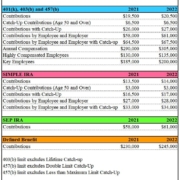Playing Your Options – Wall Street Journal – 07/07/12
The Wall Street Journal
Weekend Investor – July 7, 2012
Playing Your Options
By Ben Levisohn
Companies continue to dole out stock-based pay—even as the volatility of the past few years has shown how quickly that paper wealth can vanish.
For employees on the receiving end of stock and options packages, this combination is bringing big headaches and a greater chance that they will mismanage their money. There’s little relief in sight, either, given the troubles in Europe and the likelihood of market-roiling political clashes in the U.S. later this year.
The good news: There are simple ways to diversify stock holdings, squeeze more value out of options, reduce the odds that a portfolio will implode—and still capitalize on a rise in an employer’s share price.
Too much stock exposure can be downright dangerous. You already are heavily exposed to your employer through your salary. By loading up on company shares, you are putting more of your chips on one bet.
Comments July 7, 2012
Do you get the feeling that greedy Wall Street is taking advantage of you? Turn the tables on Wall Street and profit from its greed and reduce the risk of your company stock with a strategy called covered call writing.
With this strategy, you sell (or write) the option for Wall Street to buy your stock at a higher price (called a strike price) in the future. Covered call writing is considered to be even more conservative than simply owning a stock outright, as your risk is actually reduced by the amount you receive (called a premium) when you sell a call. Wall Street’s greedy nature can lead to unrealistic expectations of price increases, driving up the premiums you receive.
The premium you receive is your profit, no matter what happens to the stock. If the stock goes down, stays flat or goes up you keep the premium. In addition, you continue to collect all the dividends the stock pays – even though you have sold Wall Street the right to by your stock. Let’s look at an example where your stock is flat for one year. If you sell options equal to 5% of the value of your stock and you collect dividends equal to 3% of the value of your stock, you make an 8% profit over the course of one year. There is nothing wrong with an 8% profit on a flat stock.
Aaron Skloff, AIF, CFA, MBA
CEO – Skloff Financial Group
Aaron Skloff, Accredited Investment Fiduciary (AIF), Chartered Financial Analyst (CFA), Master of Business Administration (MBA), is the Chief Executive Officer of Skloff Financial Group, a Registered Investment Advisory firm. The firm specializes in financial planning and investment management services for high net worth individuals and benefits for small to middle sized companies. He can be contacted at www.skloff.com or 908-464-3060.











